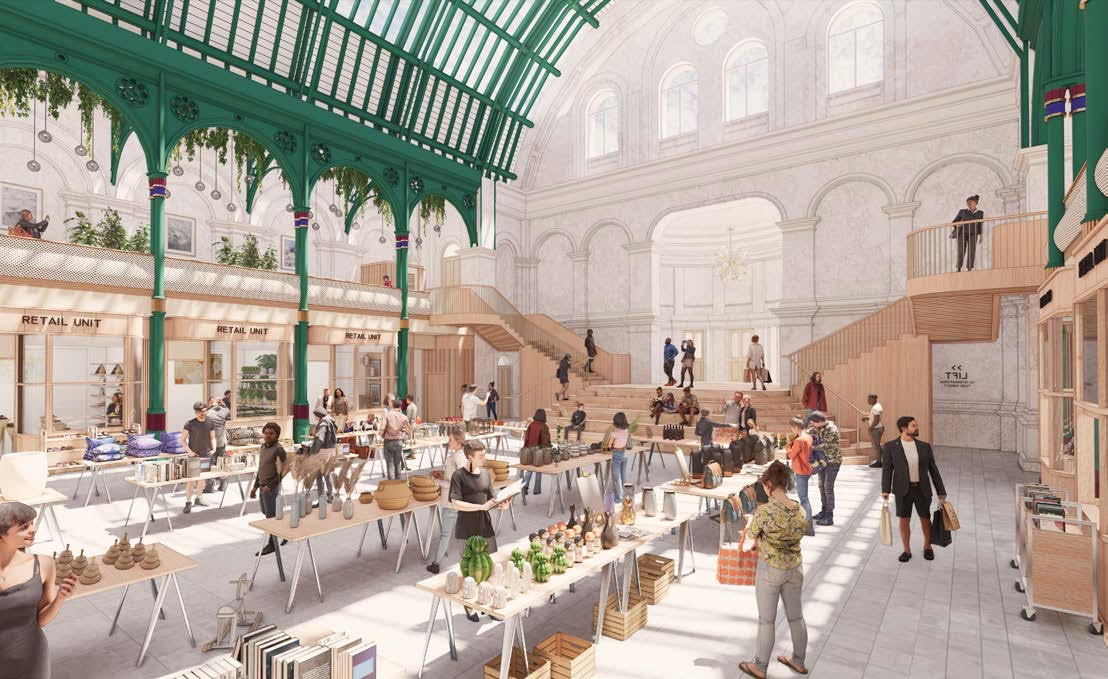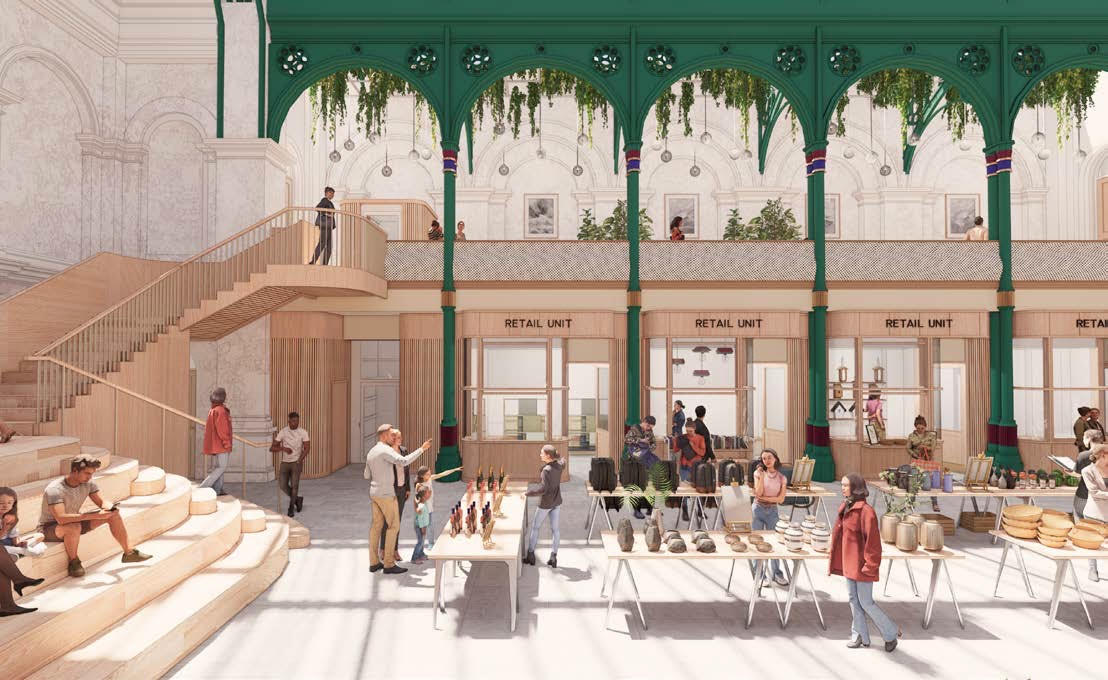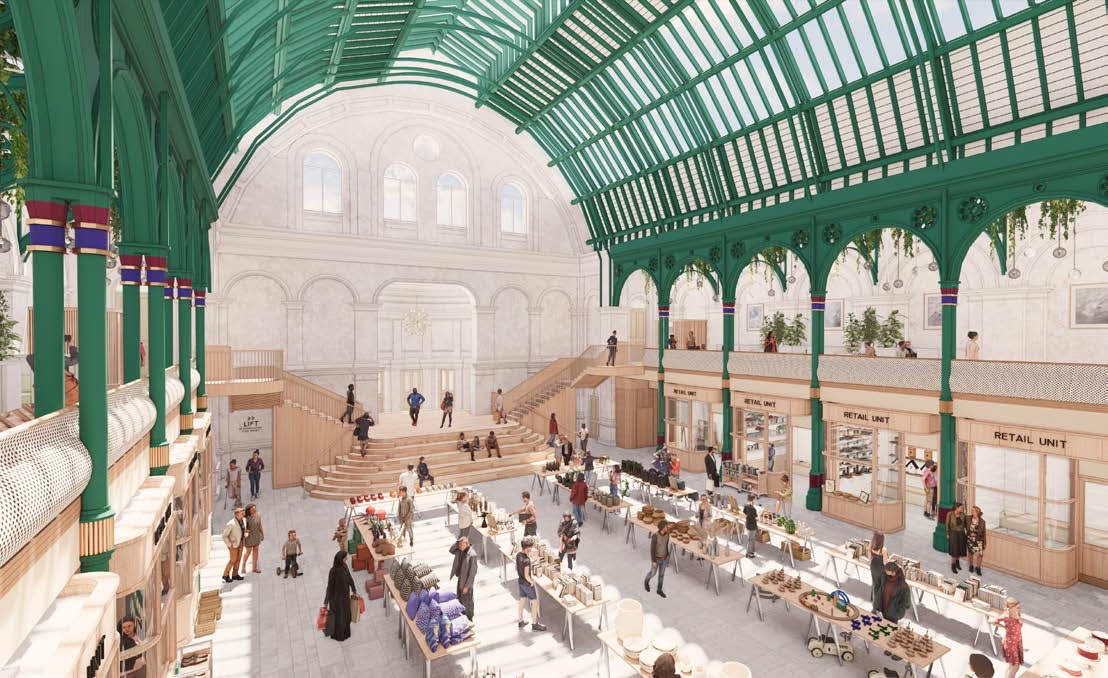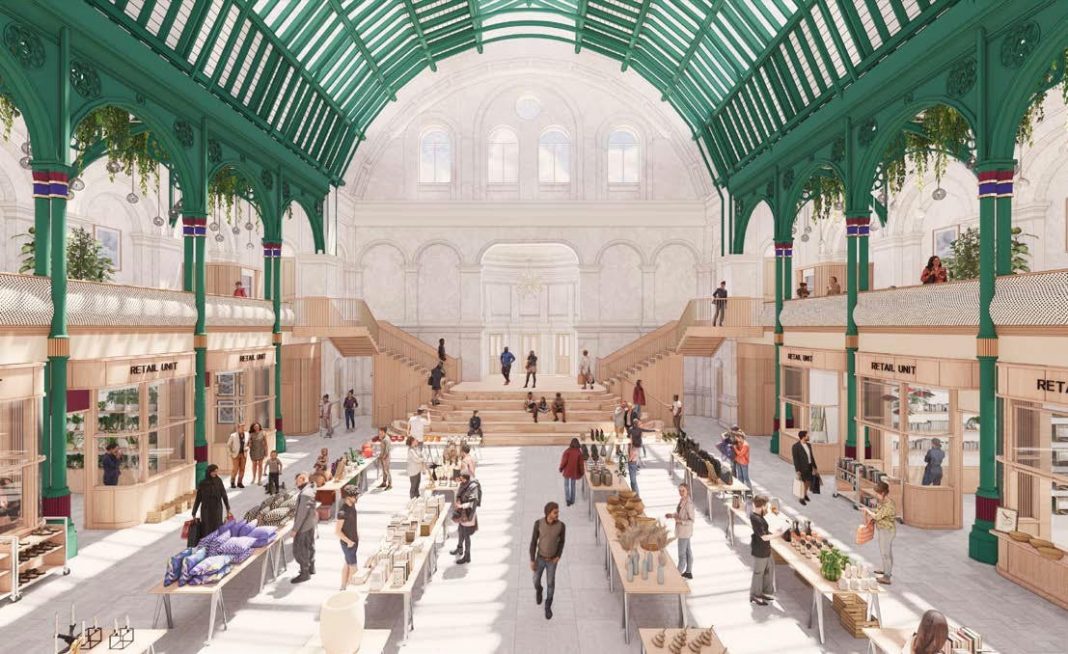Striking new images show how Doncaster’s iconic and historic Corn Exchange will be restored to its former glory in a multi-million pound makeover, following a successful funding bid to the Levelling Up Fund.
Artists impressions have been released by Market Asset Management (MAM) and Doncaster Council to show how they intend to the enhance the iconic Grade II* Listed Corn Exchange, as part of ambitious plans to transform the city centre after an £18.6 million cash injection from the Government’s Levelling Up fund.
The Levelling Up Fund presented a once in a generation opportunity to breathe fresh life into the historic Corn Exchange, undertaking physical works to make it fit for modern trading and restoring the heritage features of the building. The scheme will create modern, attractive trading units on the ground floor creating a space where market traders can thrive.

The Corn Exchange will continue to be home to a variety of trading units, creative spaces, studios for artists, makers businesses and pop-up traders, supporting a wide range of businesses with customers able to browse, watch artisans at work and make purchases directly from skilled makers.
Market operators MAM have now given the public a glimpse at the intended multi-million make over to repair and revitalise the building to retain its heritage but also support Doncaster Council’s ambition to evolve and diversify Doncaster Marketplace for the 21st century with The Enterprise Markets remaining at the heart of future city centre plans.
The plans were unveiled after the Corn Exchange was temporarily closed for refurbishment, with traders relocated to either Goose Hill (next to Doncaster Fish Market) or the International Food Hall, where they are now trading successfully and welcoming customers old and new.
Councillor Phil Cole, Cabinet Member for Finance and Trading Services, said: “We are immensely proud of Doncaster Market, its tremendous character, excellent market traders and a diverse, high quality food and retail offer.
“Following our successful bid for Levelling Up funding, we welcome this opportunity to enhance the Corn Exchange as a vibrant retail environment, attractive to residents and visitors alike and further supporting our local traders to thrive.
“The restoration work will enhance the beauty and scale of our striking 19th century Corn Exchange, a building that is grand enough to occupy the heart of any English city centre. This is just one of a number of steps in our Urban Centre Masterplan to revitalise Doncaster, and we are grateful for the help and support of our many partners.”

Hayden Ferriby, commercial director at MAM, said: “We are incredibly excited at the plans for the Corn Exchange as part of our ongoing work and commitment to increase and diversify what the award-winning Doncaster Market offers.
“Visitors want to visit unique destinations that give them an experience to remember and somewhere they want to visit again – these plans will not only help preserve an iconic building but ensure Doncaster Markets plays its role in building on Doncaster’s continued rejuvenation and recently awarded city status.”
Built in 1870 the Corn Exchange is famous for its barrel vaulted roof and Victorian classical architecture is now part of Doncaster Market.
It has a rich history from Elgar conducting the London Symphony Orchestra and a young Winston Churchill speaking about his experiences during the Boer War.
Samantha Mooney, project architect, said: “The proposals, developed by Group Ginger Architects, focus on removing the former central mezzanine to open up the space, revealing heritage features and providing a flexible, open space to host a diverse range of events including pop up markets.
“A new timber clad feature staircase connects the ground floor to the International Food Market and first floor galleries, reinstating a sense of grandeur in the space. Lift access is introduced to the first floor balconies to improve the accessibility and inclusion of the space, encouraging new users and uses. Roller shuttered shopfronts are replaced with a contemporary interpretation of a traditional Victorian bay shopfront, with an openable sliding sash frontage in keeping with traditional ‘trade-over’ market stalls.”

The plans in more detail include:
● Removal of central mezzanine to create open event / pop up trading space
● Creation of modern retail units in keeping with the heritage status of the building
● Accessibility to all levels within the Corn Exchange
● Connectivity with International Food Hall and Market Square
● New trader and event toilet facilities
● Sensitive refurbishment of the iconic Corn Exchange building – the oldest building within the Market Estate.
The plans for the Corn Exchange are part of a Doncaster Council blueprint to transform the city centre and come after it was awarded £18.6m Levelling Up funding last November.
The images released come amid an exciting time for Doncaster Market.
The market, operated by Market Asset Management (MAM), is host to an array of independent traders offering global cuisine, fresh local produce and a range of retail goods and services.
The Wool Market continues to grow as a popular place for people to socialise, shop, eat and enjoy events and entertainment. A new entertainment zone has recently opened to complement the Wool Market’s excellent independent street food traders – attracting new customers and encouraging visitors to stay longer. A brand-new main stage area has also opened, and new furniture has been installed, comfy chairs, couches, and tables – plus some greenery to brighten up customers’ days.
Doncaster Market impressed Great British Market Awards judges earlier this year and awarded Doncaster Fish Market the Best Small Food Market title.
Judges praised the historic market’s ‘distinct charm’ and called it ‘the future of the town’ and were impressed with its quality, affordability, and market managers’ commitment to supporting new businesses.



